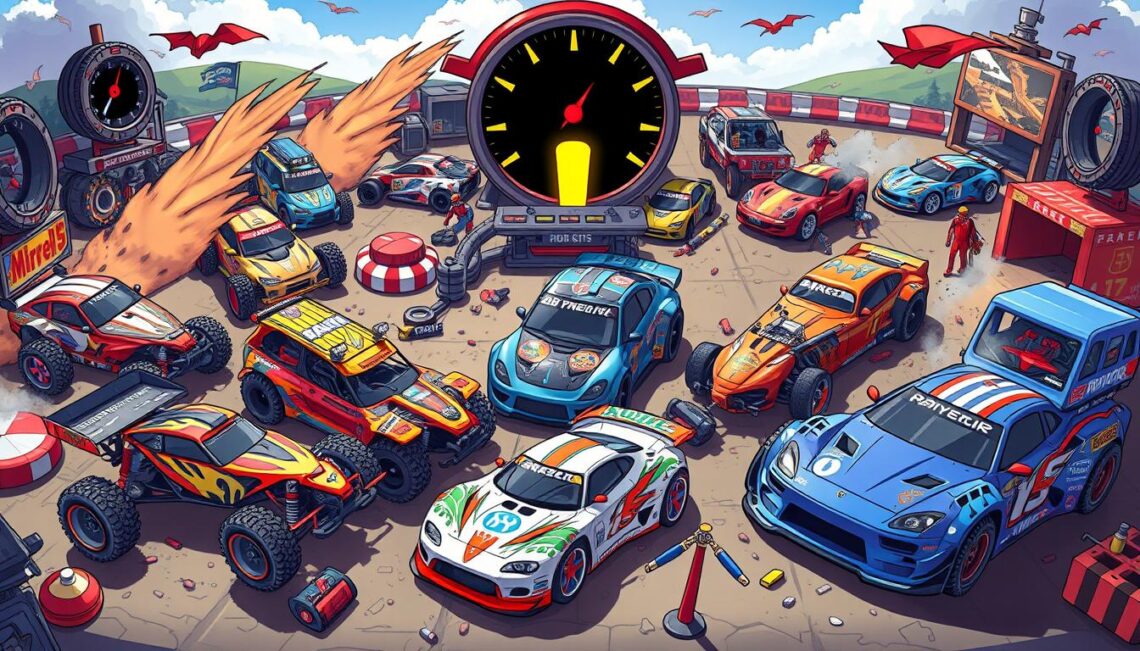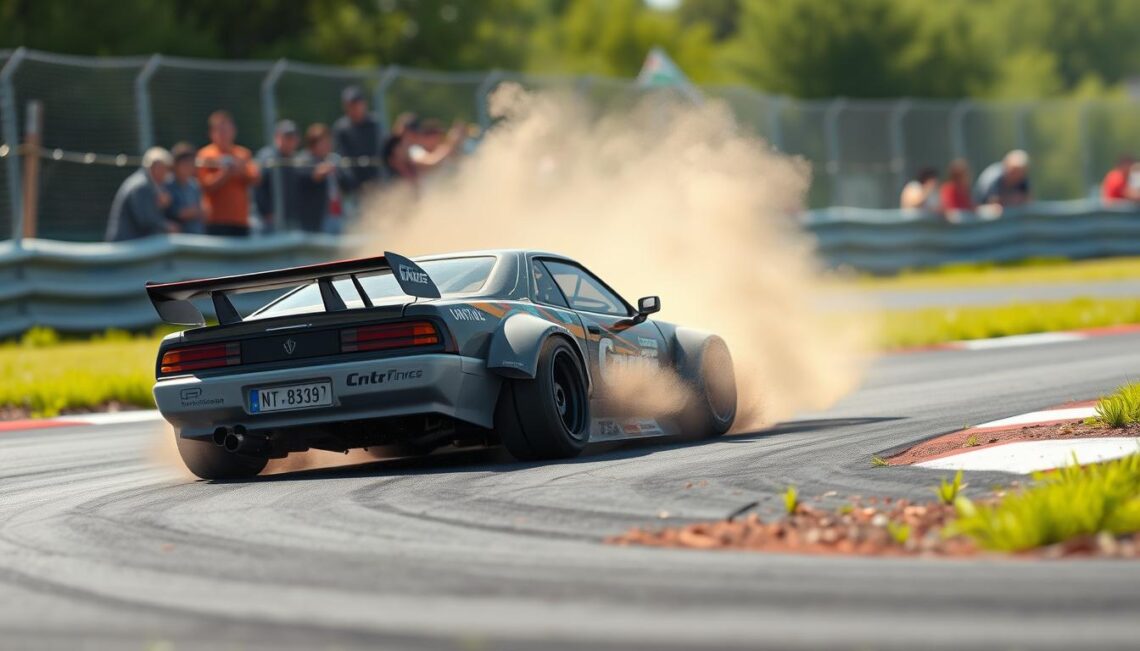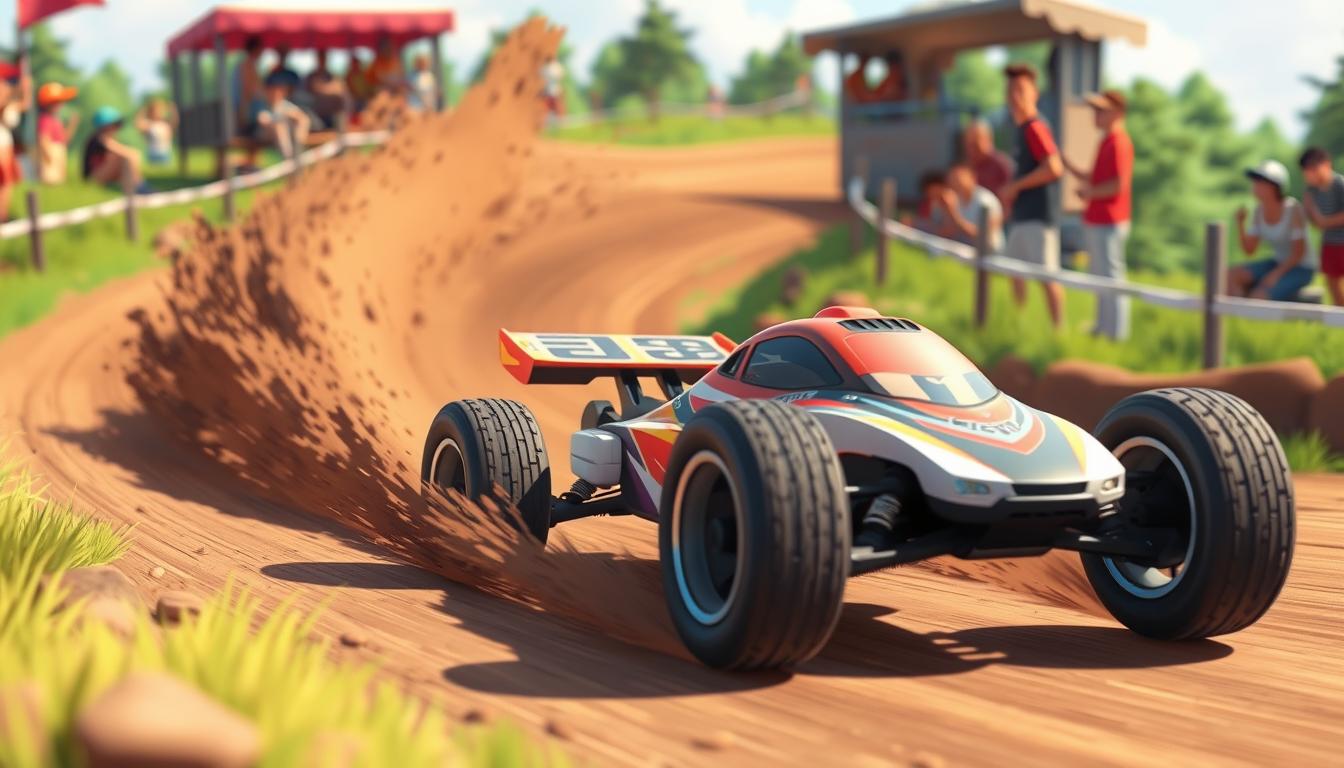Welcome to the exhilarating world of RC racing! Whether you’re just starting or looking to refine your technique, mastering your RC racing skills can significantly elevate your performance on the track. This article will provide you with essential RC car tips and racing techniques to help you improve RC racing, no matter your current skill level.
Understanding vehicle control, perfecting cornering, and implementing advanced tuning strategies are just a few areas we will explore. By focusing on practical advice, you will be empowered to enhance your RC vehicle performance and enjoy a more competitive racing experience. Ready to rev up your skills? Let’s get started!
Understanding the Basics of RC Racing
Embracing RC racing involves more than just the thrill of competition; it requires a solid grasp of the fundamentals. This section offers insights into the types of RC vehicles available, their key features, and essential terminology to enhance your knowledge and experience in the sport.
Types of RC Vehicles and Their Features
When diving into the world of RC racing, it’s important to recognize the various types of RC cars available. The two main categories include electric and nitro vehicles. Electric vs. nitro RC vehicles offer different advantages to racers:
| Type | Features | Pros | Cons |
|---|---|---|---|
| Electric | Battery-operated, quieter, easy maintenance | Quick setup, less upkeep, immediate power | Limited run time, less torque |
| Nitro | Fuel-powered, complex mechanics | High speeds, longer run times | Requires more maintenance, noise levels |
Understanding the various RC vehicle features such as chassis design, motor types, and durability is essential for making informed decisions. Each vehicle type reflects distinct characteristics influencing performance and racing experience, appealing to different preferences among enthusiasts.
Key Terminology Every RC Racer Should Know
Familiarity with RC racing terminology is crucial for effective communication and deeper understanding within the community. Learning key terms can dramatically enhance your engagement with other racers. Below are some of the important terms:
- Brushing: Refers to adjusting the brush in electric motors for improved performance.
- RPM: Revolutions per minute, an indicator of motor speed.
- Drift angle: The angle between the car’s direction and its trajectory while drifting.
- Traction: The grip of the tires on the surface, affecting acceleration and cornering.
- Chassis: The base frame that houses the car’s components.
Understanding this RC racing glossary not only aids in smooth conversations but also contributes to better decision-making and strategy during races. A firm grasp of RC racing basics will certainly empower both novice and seasoned racers alike.

Top 10 Tips to Improve Your RC Racing Skills
Cornering plays a vital role in achieving speed and efficiency on the track. Mastering the appropriate cornering techniques can dramatically enhance your RC car handling, resulting in faster lap times.
Mastering the Art of Cornering
The “apex approach” is a critical technique for improving racing cornering. This method focuses on entering and exiting corners smoothly while maintaining speed. It is essential to practice different angles and speeds. This variation helps develop intuition and control, key elements in RC racing practice. Learning how to adjust your car’s trajectory in real-time allows for better performance during competitive scenarios.
Advanced Tuning Techniques for Optimal Performance
Understanding advanced tuning tips is essential for performance optimization. This includes adjusting suspension settings, which can significantly influence handling during cornering. Fine-tuning gear ratios ensures optimum acceleration and speed. Tire selection based on track conditions affects traction, which is crucial for reduce lap times. Customizing RC car tuning according to your unique driving style allows for more personalized adjustments that align with your racing objectives.
Practicing with Purpose: Setting Goals for Improvement
Goal setting in RC racing is essential for continuous improvement. Establish measurable targets, such as lowering lap times or mastering new techniques. Structured practice sessions, with a focus on consistency and self-reflection, promote effective learning. Incorporating community feedback, training videos, and competition experiences can further enhance your capabilities. Regularly assessing your performance metrics leads to the refinement of your skills and results in better racing experiences.

The Importance of Community and Resources
Engaging with the RC racing community is vital for anyone looking to enhance their skills and enjoy the sport to its fullest. By joining RC clubs and participating in local events, racers can gain invaluable insights and support from fellow enthusiasts. These gatherings not only foster friendly competition but also create opportunities for sharing tips, techniques, and experiences, making the learning process both enjoyable and effective.
Access to quality RC resources is equally important in this journey. Hobby shops often provide expert advice and specialized gear that can significantly impact performance. Additionally, numerous online forums and instructional videos are available, where experienced racers share their knowledge on everything from basic maintenance to advanced tuning. These resources can serve as a treasure trove of information for RC racers of all skill levels.
Finally, connecting with others in the community is a critical component of growth. By sharing experiences and challenges, racers can encourage one another and create a supportive network dedicated to mutual improvement. Whether through competitions or casual meetups, the connections made in the RC racing community can lead to lifelong friendships and a deeper passion for the sport.

